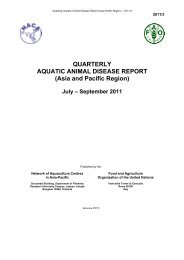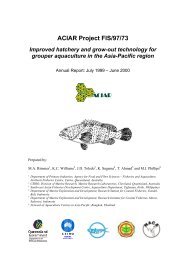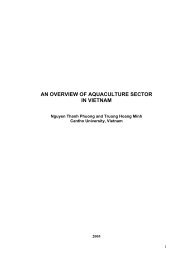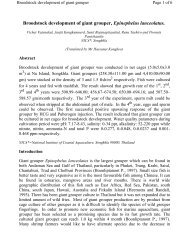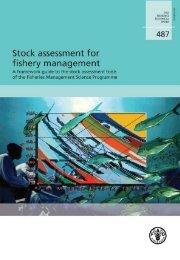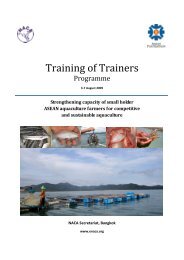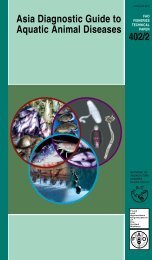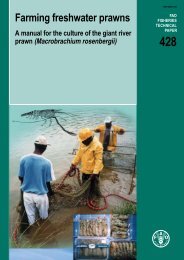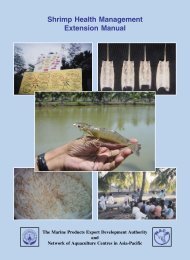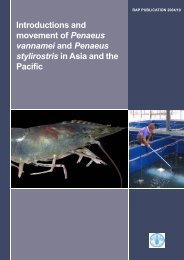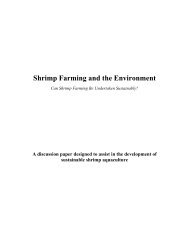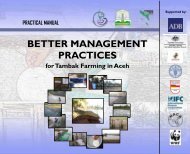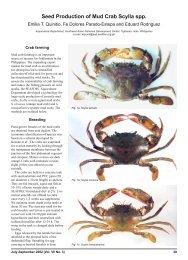State of World Fisheries and Aquaculture 2004 - Library
State of World Fisheries and Aquaculture 2004 - Library
State of World Fisheries and Aquaculture 2004 - Library
You also want an ePaper? Increase the reach of your titles
YUMPU automatically turns print PDFs into web optimized ePapers that Google loves.
Highlights <strong>of</strong> special FAO studies<br />
137<br />
However, the ecological dynamics are complex <strong>and</strong> population-driven growth in<br />
effort may be less damaging than is generally considered. An increased perception <strong>of</strong><br />
the natural variability, with vulnerable stages during periods <strong>of</strong> low productivity <strong>and</strong><br />
uncertainties connected to the emergence <strong>of</strong> more efficient technologies, indicates a<br />
need for “early warning systems”, in line with the elements outlined above.<br />
The finding that effort dynamics depend as much on the general economic <strong>and</strong><br />
social development in the region as they do on the fishing economy, implies the<br />
need for a much broader focus for monitoring fisheries. Economic analyses based<br />
on how people react <strong>and</strong> respond to macroeconomic changes are as important to<br />
underst<strong>and</strong>ing fisheries development as those based on current biological monitoring.<br />
As long as changes in effort remain population-driven <strong>and</strong> the fishing pattern is<br />
small-scale <strong>and</strong> multigear, general regulations relating to effort are problematic. It will<br />
be difficult to show that reduced effort leads to improvements in both catch rates <strong>and</strong><br />
total yield. Adaptive effort reduction may nevertheless be <strong>of</strong> local importance, either<br />
in particularly vulnerable periods, or as a means <strong>of</strong> coping with natural variations that<br />
occur under any type <strong>of</strong> management system. However, if effort dynamics become<br />
more investment-driven, the need for regulations will increase considerably. It should<br />
not be too difficult to decide how to answer the question <strong>of</strong> whether the SADC<br />
freshwaters should continue to serve as an economic safety-valve <strong>and</strong> a buffer for<br />
the people <strong>of</strong> the region, or whether its fisheries should develop into more industrial<br />
enterprises (<strong>and</strong> thereby exclude many <strong>of</strong> these people). In a situation characterized<br />
by serious <strong>and</strong> long-lasting macroeconomic recessions, it would appear essential that<br />
the buffer function be upheld. Besides, the freshwater fisheries will hardly become a<br />
driving force in the process for much needed economic reforms.



